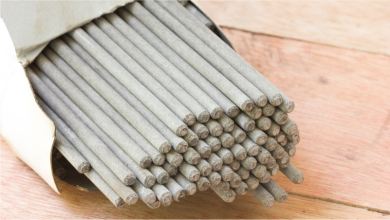The Essentials of Borosilicate Glass: Characteristics & Advantages

Borosilicate Glass: The Fundamentals
It is a type of glass containing significant amounts of boron oxide, which gives it unique properties such as high chemical resistance, thermal expansion coefficient, and thermal shock resistance. These properties make borosilicate glass ideal for many industries, including pharmaceuticals, laboratory equipment, and cookware.
One of the primary benefits of borosilicate glass is its high chemical resistance. It resists many common acids, alkalis, and other corrosive substances. As a result, borosilicate glass is often used in laboratory equipment such as beakers, test tubes, and flasks, where it can safely hold and contain potentially hazardous chemicals.
Another significant advantage of custom glass is its high thermal shock resistance. This property enables custom glass to withstand rapid changes in temperature without cracking or shattering. As a result, it is a common material used for cookware, particularly in high-temperature applications such as baking and broiling.
Also, custom glass has a low thermal expansion coefficient, meaning it does not expand or contract significantly with temperature changes. This property makes it an ideal material for precision instruments such as telescopes and lenses.
Uses in Science & Large-Scale Borosilicate Glass Manufacturing
It has a wide range of uses in science and technology due to its unique properties. One of the most significant applications is in laboratory equipment. Glassware such as test tubes, beakers, and flasks are commonly used in scientific experiments due to their high chemical resistance. They can withstand exposure to various acids, bases, and organic solvents without breaking down or leaching out harmful substances, making them ideal for handling and storing a wide range of chemicals.
It is also used to manufacture optical lenses, mirrors, and prisms. Its low thermal expansion coefficient and high transparency to visible light make it an ideal material for precision optics, including astronomical telescopes and microscopes. In addition, it is used to produce fiber optic cables and other light transmission devices.
Large-scale custom glass manufacturing is a complex process that requires specialized equipment and expertise. The raw materials used in its production include silica sand, soda ash, and boron oxide. These materials are mixed and melted at high temperatures in a furnace. The molten glass is then formed into the desired shape by blowing or pressing it into a mold.
The manufacturing process for Borosilicate glass also involves a series of carefully controlled cooling steps. This is critical to avoid thermal shock, which can cause the glass to crack or shatter. The glass is slowly cooled to room temperature in a controlled environment, allowing it to anneal and reduce internal stresses.
Borosilicate Glass: Characteristics and Advantages
A glass that contains boron oxide is called borosilicate glass, which gives it several unique characteristics and advantages. Custom glass is widely used in many industries, including scientific and laboratory applications, cookware, and precision instruments.
One of the primary characteristics of custom glass is its high chemical resistance. It can withstand exposure to various corrosive chemicals, including acids and alkalis, without degrading or breaking down. This property makes borosilicate glass ideal for use in laboratory equipment, where it can safely contain hazardous materials.
Another key characteristic of custom glass is its high thermal shock resistance. This means that Rapid temperature variations can be tolerated without it fracturing or cracking. As a result, custom glass is often used in cookware, such as baking dishes and Pyrex glassware.
It also has a low thermal expansion coefficient, meaning it does not expand or contract significantly with temperature changes. This property makes it an ideal material for use in precision instruments, such as telescopes and lenses.
One of the biggest advantages of borosilicate glass is its durability. It is resistant to scratching and breaking, making it a long-lasting and cost-effective material. Additionally, custom glass is transparent and allows for high clarity and visibility, making it an excellent material for optical and lighting applications.
Typical Uses of Borosilicate Glass
It has many different uses due to its unique properties and advantages. Some of the typical uses of custom glass include:
1. Laboratory equipment: It is widely used in laboratory equipment, such as beakers, test tubes, and flasks, due to its high chemical resistance. It can safely contain and hold hazardous chemicals without degrading or breaking down.
2. Cookware: Due to its high thermal shock resistance, it is often used in cookware, such as baking dishes and glass cooktops.
3. Lighting: It is used in lighting applications like halogen and LED due to its high clarity and transparency. It allows for excellent light transmission and minimal light loss.
4. Precision instruments: It is used in precision instruments, such as telescopes and lenses, due to their low thermal expansion coefficient. It does not expand or contract significantly with temperature changes, making it an ideal material for precise measurements.
5. Pharmaceuticals: It is used in pharmaceutical packaging, such as vials and syringes, due to its high chemical resistance and durability. It can safely contain and protect medications without degrading or breaking down.
6. Art and decoration: It is used in art and decoration applications, such as glass sculptures and ornaments, due to its clarity and ability to be molded and sculpted into different shapes.
Conclusion
In conclusion, borosilicate glass is a remarkable material with many unique properties and advantages. Its high chemical resistance, thermal shock resistance, low thermal expansion coefficient, durability, and transparency make it a versatile material widely used in many industries, including scientific and laboratory applications, cookware, precision instruments, pharmaceuticals, lighting, and art and decoration.
As technology advances, we will see more innovative uses for borosilicate glass. Its ability to withstand harsh environments and extreme conditions makes it an ideal material for various applications. Moreover, its long-lasting and cost-effective properties make it a popular choice for manufacturers and consumers.
Custom glass has proven to be a valuable material that has contributed significantly to scientific research, modern manufacturing, and daily life. Its unique characteristics and advantages make it a crucial component in many different products and applications, and it will likely continue to play an essential role in the future of innovation and progress.
Read More About; zagzine



